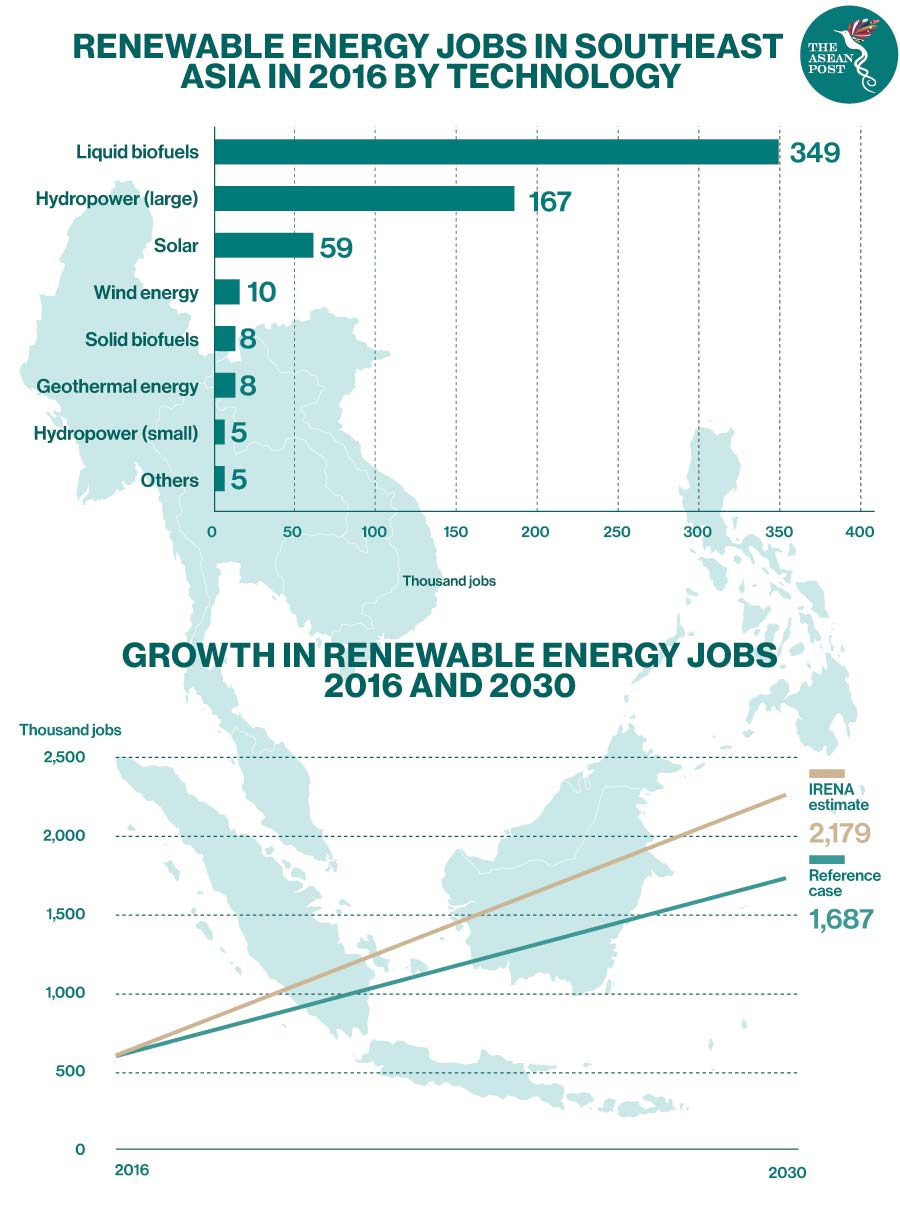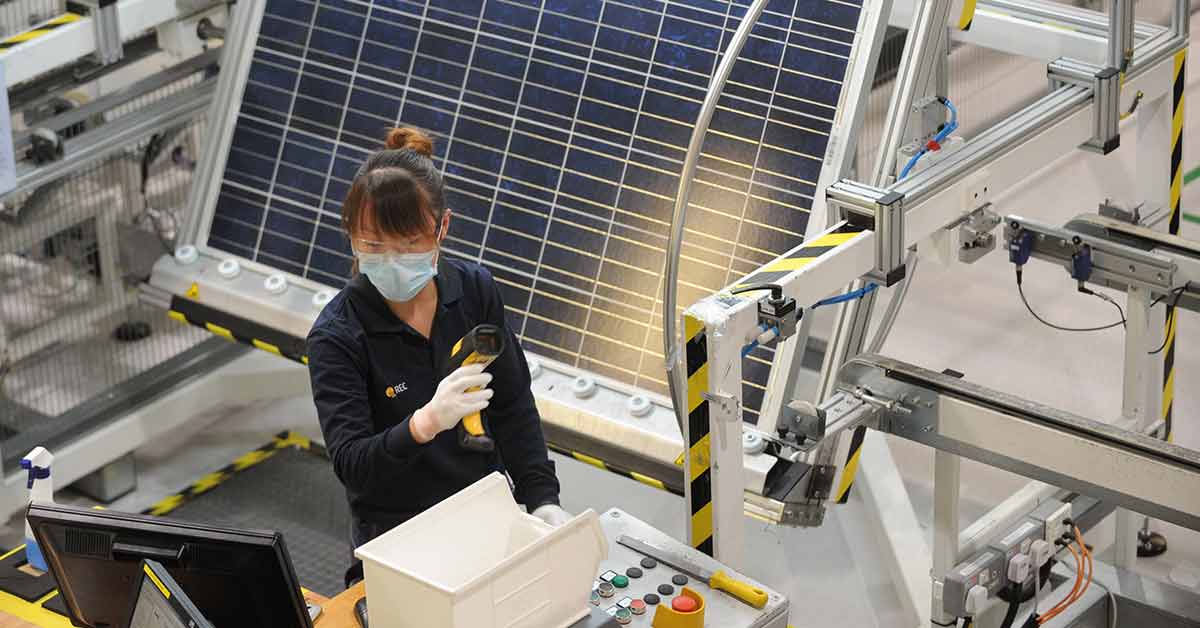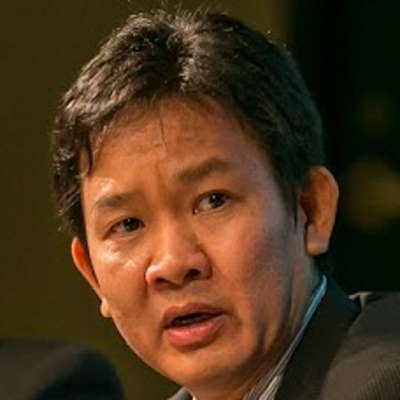The world has been struggling with the COVID-19 outbreak which has already damaged the global economy, and ASEAN is not an exception. The magnitude of the economic impact is hard to predict and depends largely on the effectiveness of pandemic containment efforts.
The International Monetary Fund (IMF) projected that the world economy will likely contract at -3 percent while the economies of the ASEAN 5 (Thailand, Singapore, Malaysia, Philippine and Indonesia) is likely to contract at -0.6 percent in 2020, much worse than during the 2008-09 Asian financial crisis.
The immediate problem is to restore the economy by bringing jobs back as quickly as possible. Governments will need to consider stimulus packages that could create long-lasting and positive impacts on a wide range of issues. Energy efficient (EE) buildings can address two of the biggest concerns: energy savings and jobs.
Fostering energy efficiency through retrofitting existing buildings will generate local jobs quickly while decreasing the costs of running buildings. This will assist households as well as businesses to recover more quickly from the crisis.
Many ASEAN member states lack the capacity to provide sufficient stimulus packages to save the economy and may have already experienced difficulties in addressing rising unemployment, slow domestic demand, and the depletion of national savings. The scale of impact on social wellbeing will largely depend on how long the pandemic continues.
The longer it takes, the deeper the hardship as households’ savings are depleted further and large household debts may end up in default. Without proper economic stimulus packages, economic recovery will be slow, and the impact will be enormous.
Some ASEAN member states do not have formal social protection systems in place, and people rely on adaptive social networking where families and friends support each other during difficult times. But the scale of this crisis hits all families at the same time, making these informal social protection systems fall apart under the weight of too many demands at once.
Thus, many households will need immediate subsidies, otherwise, the level of poverty will increase drastically many people are already living close to the poverty line of US$1/day in some ASEAN countries.
Poor households in Southeast Asia are mainly engaged in the occupation of hired labour. The migration from rural to urban or to neighbouring countries to seek job opportunities is an important contribution to households’ income. However, as a result of the pandemic, there are far fewer jobs in the construction, garment, footwear, and textile industries.
As part of their economy stimulus planning, governments can plan EE projects to create local jobs quickly as well as help businesses to recover from the coronavirus crisis.

Beside building energy efficiency, the application of energy savings in households and industries could reduce spending. Optimizing EE in a building is cost-effective because it can be up to 70 percent more efficient than conventional commercial buildings and will offer owners a quicker pathway to reduce energy consumption, and hence, lower building operating costs.
Stimulus packages could also include investment in Energy Service Companies (ESCOs). Energy efficiency is also known as the ‘hidden fuel’ that makes unused energy available for other economic activities and to a larger population.
Because energy demand is expected to expand quickly once the COVID-19 crisis subsides, appropriate energy policies will be needed in ASEAN to guide the development of energy efficiency.
ASEAN member states will need to act swiftly and prepare energy policy changes to embrace renewables, clean energy technologies and energy efficiency into their national energy development plans to transition energy systems towards sustainability. The investment in EE will help to avoid building more power plants, and the savings can be put back into the economy.
Due to Southeast Asia’s hot and humid climate, air-conditioners and mechanical ventilation (ACMV) are the biggest draw on power in buildings. Although, ACMV systems in most non-medical buildings are not in high-use during the current COVID-19 pandemic, building owners and operators now have another challenge besides making their buildings energy-efficient.
Because of the small chance of the virus spreading through ventilation systems, ACMV systems have new operation rules based on a regimented guidance.
Energy Efficiency Retrofitting
These rules require that fresh air be brought in from outside the building, which increases energy consumption because outdoor air intake will increase the cooling load demand. However, there are other EE measures that could be explored to reduce building operating costs and greenhouse gas (GHG) emissions.
Governments can consider a two-pronged approach to energy efficiency retrofitting.
First, many countries in Southeast Asia do not have EE retrofitting demonstration projects. Thus, it is a good time to include them in the economic stimulus package to showcase the methodology and the practical aspects of implementation. In addition, the achievement of energy savings and return on investments can be quantified to demonstrate the viability and sustainability of EE projects.
In the stimulus package, the governments of ASEAN member states should provide funding to the private sector to conduct energy audits for large buildings that consume yearly energy exceeding a certain amount (which is to be determined by respective governments as the threshold values vary in different countries).
Second, governments may also consider providing fiscal incentives such as an EE investment tax allowance, EE equipment import duty waivers, etc. The combined effect of government initiatives through stimulus package by including EE projects and improved building operations under the current pandemic scenario will provide benefits such as safer working environments in buildings through improvement in building operations and cutting the risk of the coronavirus spreading due to poor equipment standards in air-conditioning.
Furthermore, the implementation of EE buildings and related investments will create immediate job opportunities, hence, contributing directly to business recovery. It is a good time for governments to seriously invest in EE buildings as it will bring benefits to the environment and society at large.
It will also help create quick local employment as the majority of buildings will have to outsource manpower and services for retrofitting. The purchase of new energy-efficient appliances and devices will also help to kickstart the economy quickly.
Related Articles:


